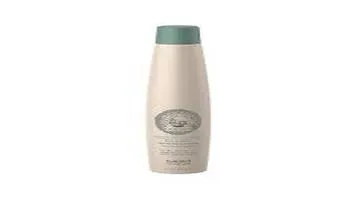Earplugs: A Comprehensive Review
Earplugs are small devices designed to be inserted into the ear canal to protect the ears from loud noises, water, foreign bodies, or excessive wind. Made from a variety of materials such as foam, silicone, or wax, earplugs are versatile tools used in numerous settings, including workplaces, concerts, swimming pools, and while sleeping. Foam earplugs are particularly effective in reducing noise levels, making them a popular choice for individuals looking to prevent hearing damage or improve focus in noisy environments. Silicone and wax earplugs are often used for water protection, ideal for swimmers or individuals prone to ear infections. Earplugs are compact, portable, and easy to use, offering a convenient solution for anyone needing auditory protection or peace and quiet.

In today's fast-paced and often noisy world, maintaining a sense of peace and quiet can be challenging. Whether you're trying to concentrate at work, sleep better at night, or protect your hearing at a loud concert, earplugs can be a small yet mighty tool. This review dives deep into the various aspects of earplugs, examining their types, benefits, and potential drawbacks, ultimately helping you decide if they are worth incorporating into your daily life.
Types of Earplugs
Earplugs come in various types, each tailored to specific needs and preferences. The most common types include foam, silicone, wax, and custom-molded earplugs.
1. Foam Earplugs: These are often the most affordable and widely available. Made from memory foam, they expand to fill the ear canal, providing a snug fit. They are disposable and ideal for one-time or short-term use, such as during travel or at a loud event.
2. Silicone Earplugs: These are usually reusable and designed to be more durable than foam earplugs. They can be molded to fit the shape of your ear, making them more comfortable for extended wear. Silicone earplugs are often used for swimming, as they are water-resistant.
3. Wax Earplugs: Similar to silicone, wax earplugs are moldable and provide a custom fit. They are particularly good for sleeping, as they are soft and less likely to cause discomfort if you lie on your side.
4. Custom-Molded Earplugs: These are made from impressions of your ears and offer the best fit and comfort. While more expensive, they are perfect for long-term use, especially for musicians, industrial workers, or anyone needing to wear earplugs regularly.
Benefits of Earplugs
Earplugs offer a range of benefits that can significantly improve your quality of life. Here are some key advantages:
1. Noise Reduction: The primary function of earplugs is to reduce noise levels. This can be particularly beneficial in noisy environments, such as during air travel, at concerts, or in industrial settings. Lowering noise exposure can prevent hearing damage and reduce stress.
2. Improved Sleep: For light sleepers or those living in noisy neighborhoods, earplugs can be a game-changer. By blocking out disruptive sounds like traffic, snoring, or early morning birds, earplugs can help you achieve deeper, more restful sleep.
3. Enhanced Concentration: In work environments or study areas, background noise can be highly distracting. Earplugs can create a quieter space, allowing for better focus and productivity.
4. Hearing Protection: For those exposed to loud noises regularly, such as musicians, construction workers, or shooting enthusiasts, earplugs can protect against long-term hearing damage, including tinnitus and hearing loss.
5. Comfort and Convenience: Modern earplugs are designed to be comfortable and easy to use. With various materials and designs available, you can find a pair that fits well and suits your specific needs.
Potential Drawbacks
While earplugs offer numerous benefits, they are not without potential downsides. It's essential to be aware of these to make an informed decision:
1. Discomfort: Especially with prolonged use, some individuals may find earplugs uncomfortable. Foam earplugs, in particular, can cause irritation if not inserted correctly. Custom-molded earplugs, while more comfortable, can be quite expensive.
2. Ear Infections: Improper use of earplugs, such as not keeping them clean or sharing them with others, can increase the risk of ear infections. It's crucial to maintain good hygiene practices, like cleaning reusable earplugs regularly and disposing of disposable ones after use.
3. Over-reliance: Relying too heavily on earplugs can sometimes cause you to overlook underlying issues, such as chronic insomnia or workplace noise regulations. It's essential to address the root cause of noise problems rather than solely depending on earplugs.
4. Cost: While foam earplugs are inexpensive, the cost of reusable or custom-molded earplugs can add up. If you use earplugs daily, investing in higher-quality options might be worthwhile, but it's a consideration to keep in mind.
Conclusion
In summary, earplugs are a versatile and effective tool for managing noise levels in various settings. They offer significant benefits, including noise reduction, improved sleep, enhanced concentration, and hearing protection. However, potential drawbacks like discomfort, risk of infection, and cost should also be considered.
Ultimately, the decision to use earplugs depends on your specific needs and circumstances. For those frequently exposed to loud environments or struggling with sleep due to noise, earplugs can be an invaluable addition to your daily routine. By choosing the right type and ensuring proper usage and hygiene, you can maximize their benefits while minimizing any potential downsides.






